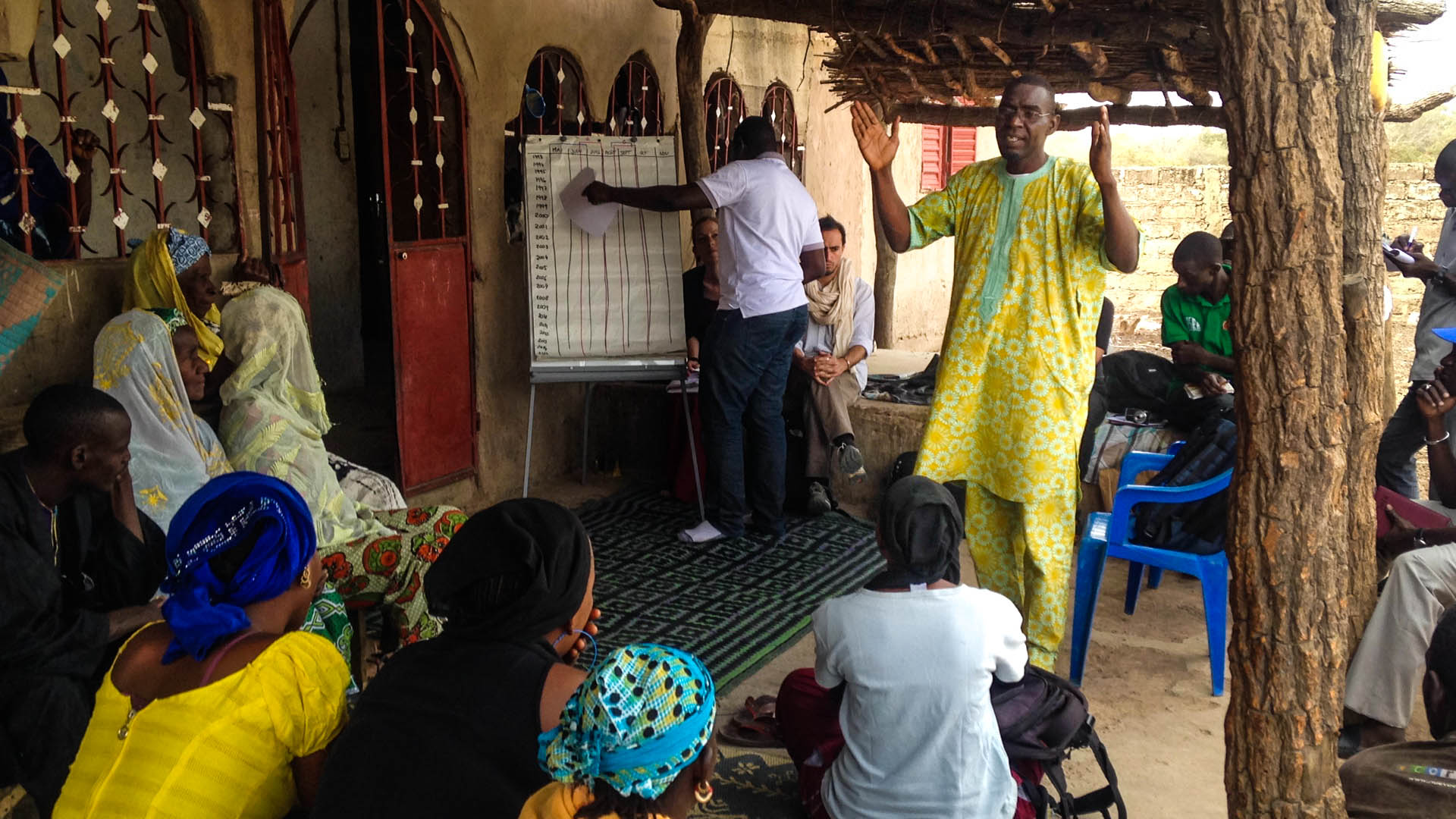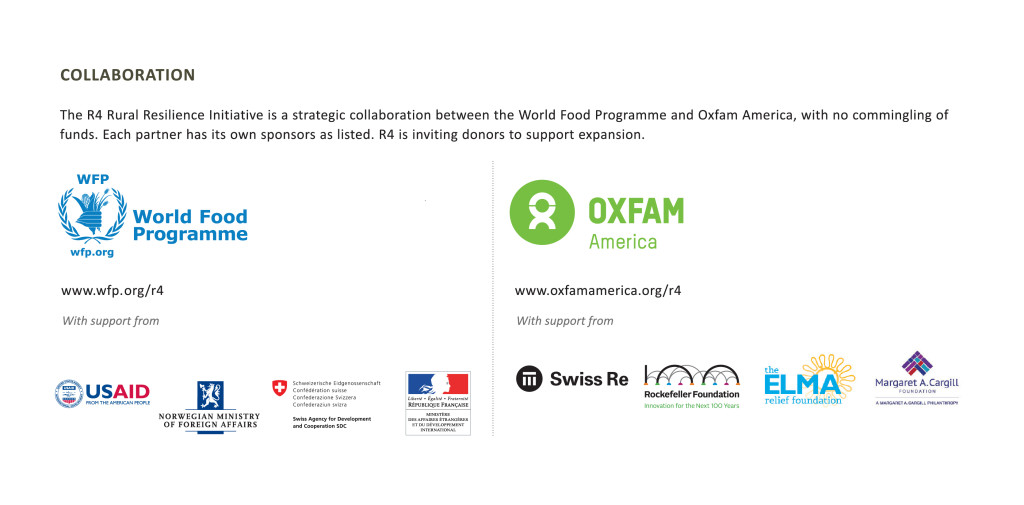Farmers receive insurance payouts in Senegal
R4 Senegal Partners
– World Food Programme
– Oxfam America
– PlaNet Guarantee
– Compagnie Nationale d’Assurance Agricole du Sénégal
– Institut Sénégalais de Recherche Agricole
– Agence Nationale de l’Aviation Civile et de la Météorologie
In Tambacounda, Senegal, small-scale farmers rely on sufficient and steady rainfall at key times of the growing season. As climate change leads to increased irregularity and intensity of rainfall events, the adaptation strategies employed by farmers to cope with shocks do not always suffice. The fear of poor productivity in a year often prevents them from investing in more efficient, but perhaps slightly riskier, strategies.
Through the R4 Rural Resilience Initiative, farmers have the option to purchase index insurance for coverage against the worst drought years, which can unlock more productive risk taking and contribute to increased resilience. In 2015, 3,600 farmers purchased the insurance, and the late start of the rainy season triggered a payout for the majority of those farmers. The Senegalese public broadcasting company Radiodiffusion Télévision Sénégalaise covered the payout dissemination (see English translation below).
The index design process, which strongly relies on participatory data collection, is led by IRI’s Financial Instruments Sector Team in close collaboration with the World Food Programme. In an effort to build local capacity and pave the way for further scaling of the project, IRI is training a new team of experts from key organizations in Senegal (CNAAS, PG, ISRA, ANACIM; see links in list above) on index insurance design. The new team gathered in Dakar last month for the first training session, and they aim to design the index for Senegal in the near future. Look for a Q&A with our FIS team soon for more on this project.

Mr Cheikh Sidy Cissokho (CNAAS) discusses historical drought years with farmers in the village of Woundoudou Amirou, Senegal. Photo: Dan Osgood/IRI, March 2016.
English translation of video transcript:
Medina Diakha gets a payout for 60 families
Despite a rough rainy season, Aissata was easily able to provide the 3 daily meals for her family. It was partly thanks to the agricultural insurance provided by the World Food Programme.
[Aissata:] “During the rainy season we grow crops. When the rain is not on time, it (R4) helps us to have something to eat, it allows us to feed our children.”
Just like Aissata, sixty farmers of Medina Diakha subscribed to this insurance as part of the resilience project R4.
[Carla De Gregorio:] “This means that there are four components that work together to build the resilience of the rural Senegalese communities in coping with climate change; the risks that arise from climate change.”
[Cheikh Sidy Cissokho:] “Communities have massively responded and have been committed to following all insurance procedures from signup (enrollment) to work (work for insurance), and today we are at the payout phase.”
Through this project, WFP and its partners aim to protect the farmers from shocks related to climate change.
[Jihan Jacobbuci:] “I really am glad to say that WFP currently assists 6,000 households through the distribution of food and vouchers thanks to this initiative, and that this year, 3600 farmers in over 110 villages subscribed to index insurance.”
[Mamadou Badiane:] “The state of Senegal is here to accompany you night and day in all your development efforts. We’ve observed that WFP and the project R4 intervene directly in households (and this is the foundation…)”
In this area of Sinthiou Maleme, at least 200 farmers received payouts. 47 million (FCFA) will be distributed in Tambacounda.


You must be logged in to post a comment.